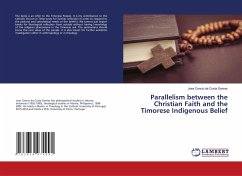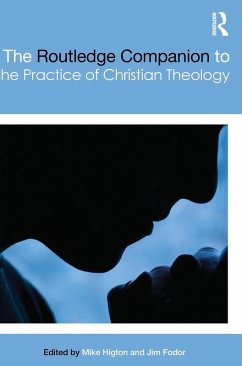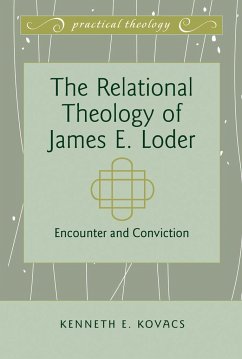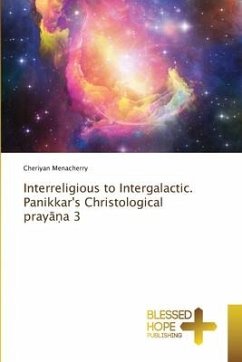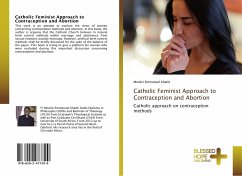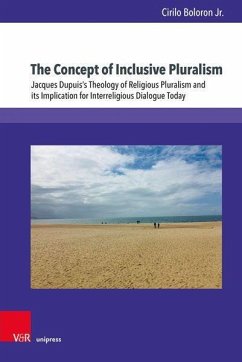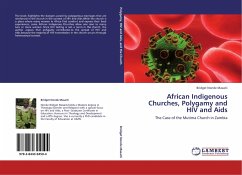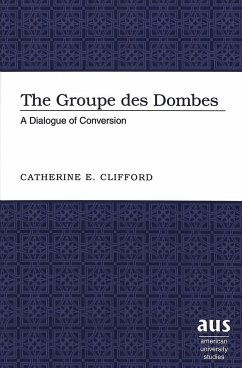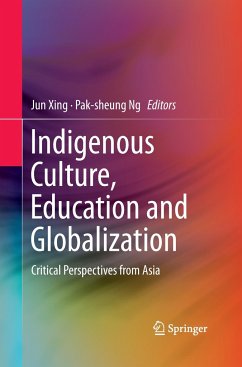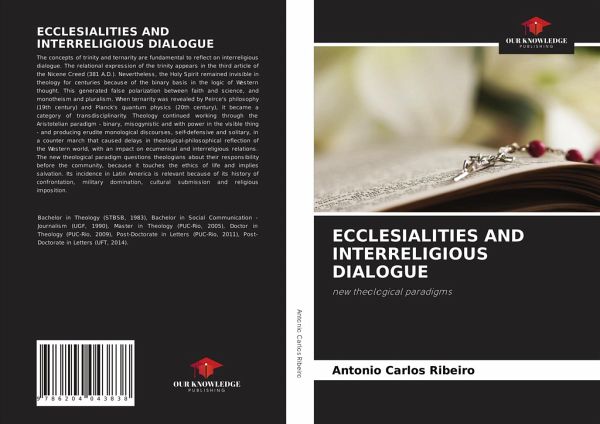
ECCLESIALITIES AND INTERRELIGIOUS DIALOGUE
new theological paradigms
Versandkostenfrei!
Versandfertig in 6-10 Tagen
55,99 €
inkl. MwSt.

PAYBACK Punkte
28 °P sammeln!
The concepts of trinity and ternarity are fundamental to reflect on interreligious dialogue. The relational expression of the trinity appears in the third article of the Nicene Creed (381 A.D.). Nevertheless, the Holy Spirit remained invisible in theology for centuries because of the binary basis in the logic of Western thought. This generated false polarization between faith and science, and monotheism and pluralism. When ternarity was revealed by Peirce's philosophy (19th century) and Planck's quantum physics (20th century), it became a category of transdisciplinarity. Theology continued wor...
The concepts of trinity and ternarity are fundamental to reflect on interreligious dialogue. The relational expression of the trinity appears in the third article of the Nicene Creed (381 A.D.). Nevertheless, the Holy Spirit remained invisible in theology for centuries because of the binary basis in the logic of Western thought. This generated false polarization between faith and science, and monotheism and pluralism. When ternarity was revealed by Peirce's philosophy (19th century) and Planck's quantum physics (20th century), it became a category of transdisciplinarity. Theology continued working through the Aristotelian paradigm - binary, misogynistic and with power in the visible thing - and producing erudite monological discourses, self-defensive and solitary, in a counter march that caused delays in theological-philosophical reflection of the Western world, with an impact on ecumenical and interreligious relations. The new theological paradigm questions theologians about their responsibility before the community, because it touches the ethics of life and implies salvation. Its incidence in Latin America is relevant because of its history of confrontation, military domination, cultural submission and religious imposition.




